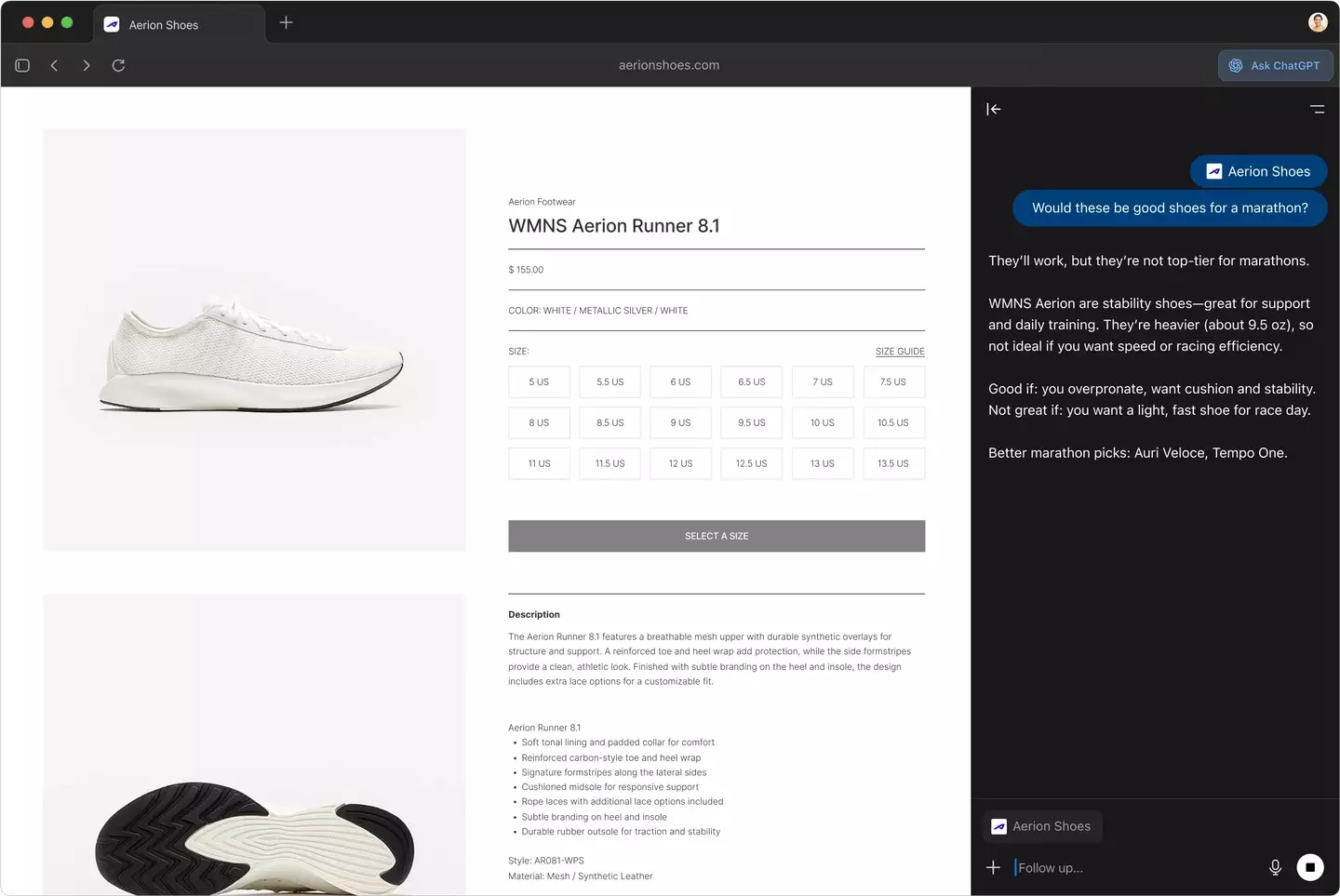
OpenAI's plans for ChatGPT keep growing bigger, and its latest innovation sees people gain access to an entire browser designed around the AI tool — yet it's left some feeling 'deeply uncomfortable' with the results.
Tech has progressed so much within the last three years that the days of plugging a simple prompt into ChatGPT's interface feel primative in comparison to what is on offer in 2025.
Currently it's the video and photo generation tools that are drawing all the attention, as both Google and OpenAI have offered up frighteningly realistic results, with the former also releasing 'game changing' photo editing software.
However, one new release from OpenAI that might have gone under the radar for many standard users is its new bespoke browser, as 'ChatGPT Atlas' gives people an alternative to Chrome, Edge, and others with a unique twist.
Advert

Instead of having to always have a ChatGPT tab open that you keep having to switch back to, Atlas effectively has OpenAI's tools read every page you're on, giving you access to a permanent side bar if you ever want to ask a question or enact a prompt.
"I had it summarize a long article, explain a paragraph I didn't get, and even compare product specs without leaving a page," writes one Reddit user who has already tested the new software, and they seem impressed.
That's not all it does either, as you can also use the new 'Agent' mode for larger and more complex tasks that might require research across multiple sites, and users can equally enable a browser memory feature for enhanced context when conversing with ChatGPT.
Advert
However, not everyone is on board with the new browser, with one key concern seemingly popping up a lot across people who have been left feeling 'uncomfortable' with the experience.
"It's like having someone constantly watching what you're doing on the internet," illustrates one dissatisfied tester. "Honestly... It makes me uncomfortable, might use it just for work and even there I'm not really sure..."
Advert
There is seemingly a 'visibility toggle' that lets you switch off ChatGPT's access to certain 'private' sites, but you definitely can't blame people for feeling like they're not alone when browsing, especially after other AI tools have started using conversations to generate personalized ads.
Others have also pointed out that this should be nothing new if you use any of the more popular browsers that already exist – especially Chrome – as Google, for example, is constantly tracking and 'watching' what you're doing online.
"I don't usually type all my personal stuff into the search bar like I sometimes do with ChatGPT," the original commenter responded, however. "So, it feels somehow different to me."
